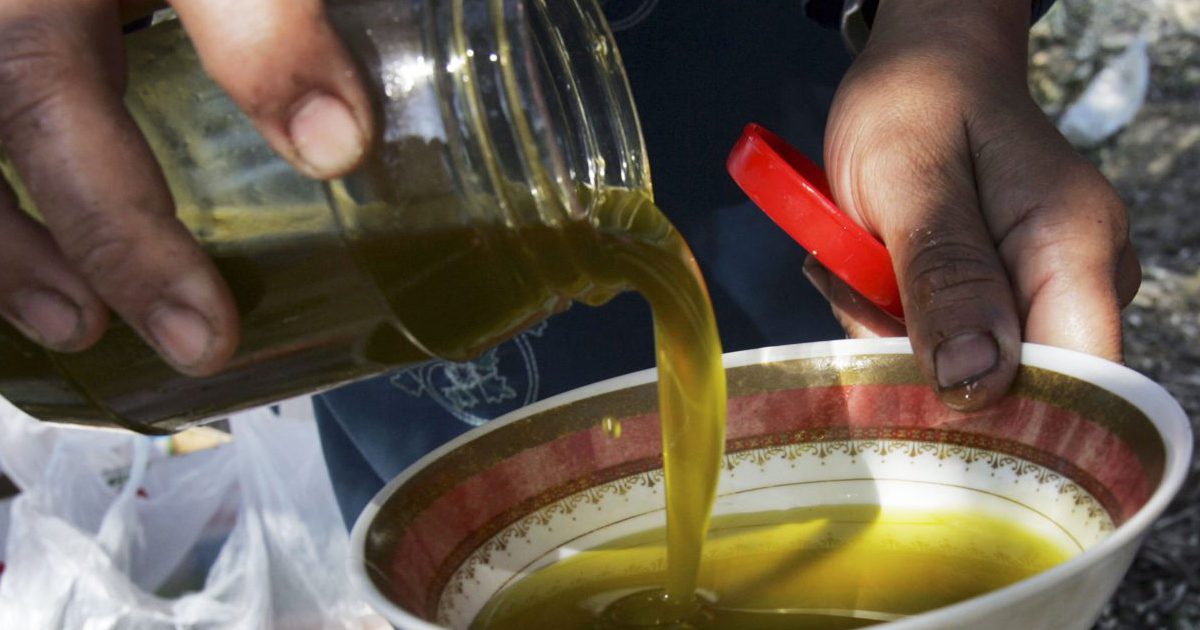Saying “all olive oil” is hard, and so is distinguishing between varieties. But not all olive oil is the same — and it’s more complicated than virgin versus extra virgin.
Videos by Rare
A pair of studies conducted by the Olive Center at the University of California-Davis in 2010 and 2011 found that as many as 69 percent of imported olive oils do not meet the criteria to be truly considered “extra virgin,” which include analyses of the oil’s content as well as properties like ultraviolet light and heat absorption. (Because olive oil is sensitive to both, measuring an oil’s reactions to heat and UV light can help in determining its purity.)
RELATED: There’s a good chance that the olive oil in your cupboard isn’t pure olive oil
“Extra virgin” olive oil is the highest quality available — with a price to match. But researchers at U.C. Davis concluded that “the quality level of the largest imported brand names is inconsistent at best” after analyzing nearly 200 samples of about a dozen olive oils, both imported and domestic.
That led to a flurry of now-viral articles about how 69 percent of olive oil is fake. Which is also not true — while researchers weren’t encouraged by the olive oil samples they tested, they also weren’t asserting that 70 percent of the olive oils they tested were instead, say, canola oil. The conclusion of the U.C. Davis Olive Center’s research was solely how rare it was for “extra virgin olive oil” to actually meet or exceed their testing standards for “extra virgin” olive oil.
Three main factors can expose a supposedly high-quality extra-virgin olive oil as something less prestigious: acidity due to oxidation from direct light or heat; chemical damage from bad or “overripe” olives and “processing flaws” in storage and handling; and “adulteration” with cheaper virgin olive oil or another oil entirely, like sunflower oil.
The Olive Center found that a majority of brands tested, particularly imported brands, failed to achieve the purity and quality standards demanded by the “extra virgin” designation. Those brands are named and shamed in their report.
Olive oil manufacturers and the International Olive Council, however, cried foul, mainly at the Olive Center’s assertion that the majority of olive oils they reviewed were “fake,” which both implies that most oil bottled for sale is simply not olive oil and fits neatly into a compelling headline, causing what they called a “media stir.” They also criticized the Olive Center’s methodology, claiming the sample sizes were too small to be representative and statistically significant.
In a letter, the International Olive Council added that they had reviewed the testing methods used by U.C. Davis researchers but “unanimously opposed” their use, citing “limited applicability.”
Bertolli, a manufacturer named in the study for being an importer of “fake” olive oil, reacted similarly. In a statement, the company says they are “taking legal measures to vigorously defend the reputation of [their] company and [their] brand” in the wake of the report, claiming that the U.C. Davis Olive Center’s study was “completely discredited” by the International Olive Council and that unnamed “independent testing” could not replicate the results.
This story has been updated to include a statement from Bertolli.
[anvplayer video=”3912396″ station=”National Content Desk”]



